Slate legal reporter Dahlia Lithwick tells Bill Moyers that the Roberts Supreme Court is one of the most ideologically polarized in history.
“Some of the justices are very proud of the fact that they don’t read any newspaper of record,” she says. “More and more the justices only hire clerks who agree with them… So this court is as polarized in terms of who they interact with, who they see, who they confer with — I think that we have ever seen in history.” Lithwick observes that the minority dissents are “a pretty good indicator” of how the two ideological sides of the court “don’t even see each other.”
We rounded up some of the most prominent dissents during the Roberts era, and selected highlights from seven.
1. Justice Ruth Bader Ginsburg on Hobby Lobby
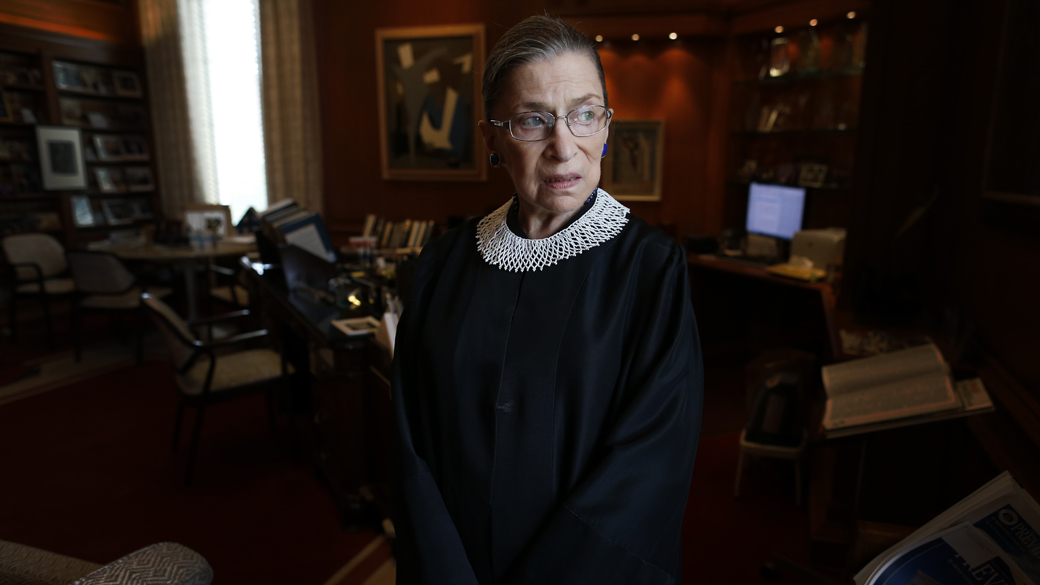
Justice Ruth Bader Ginsburg poses for a photo in her chambers at the Supreme Court in Washington, July 24, 2013. (AP Photo/Charles Dharapak)
“Approving some religious claims while deeming others unworthy of accommodation could be ‘perceived as favoring one religion over another,’ the very ‘risk the Establishment Clause was designed to preclude.’ The Court, I fear, has ventured into a minefield.”
2. Elena Kagan on prayers opening town hall meetings
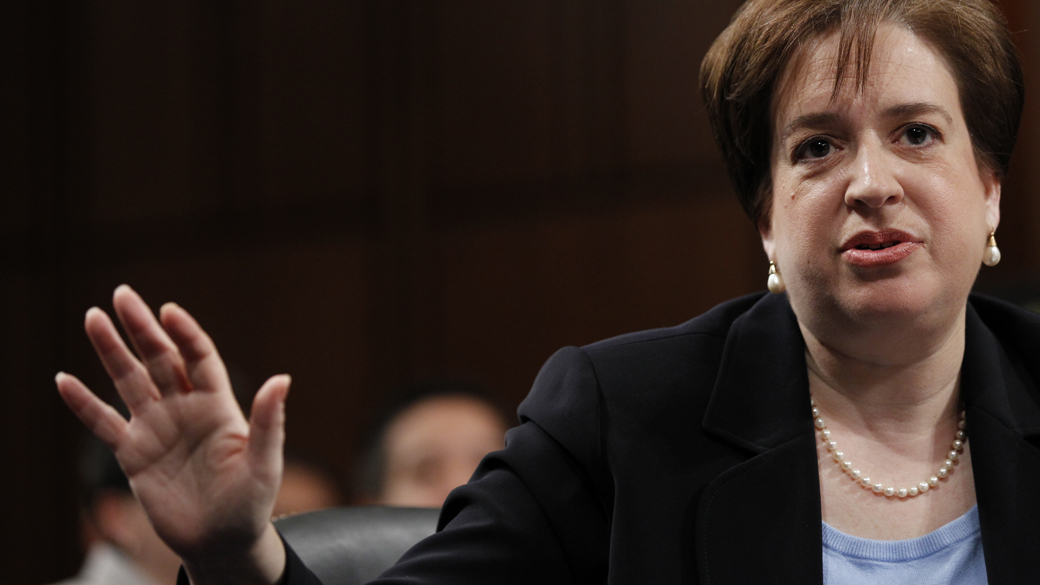
Supreme Court Justice (at the time, nominee) Elena Kagan testifies on Capitol Hill in Washington, June 30, 2010, before the Senate Judiciary Committee hearing on her nomination. (AP Photo/Alex Brandon)
In her dissent, Justice Elena Kagan wrote, “I respectfully dissent from the Court’s opinion because I think the Town of Greece’s prayer practices violate that norm of religious equality — the breathtakingly generous constitutional idea that our public institutions belong no less to the Buddhist or Hindu than to the Methodist or Episcopalian. In arranging for clergy members to open each meeting, the Town never sought (except briefly when this suit was filed) to involve, accommodate, or in any way reach out to adherents of non-Christian religions. So month in and month out for over a decade, prayers steeped in only one faith, addressed toward members of the public, commenced meetings to discuss local affairs and distribute government benefits. In my view, that practice does not square with the First Amendment’s promise that every citizen, irrespective of her religion, owns an equal share in her government.”
3. Justice Sonia Sotomayor on affirmative action
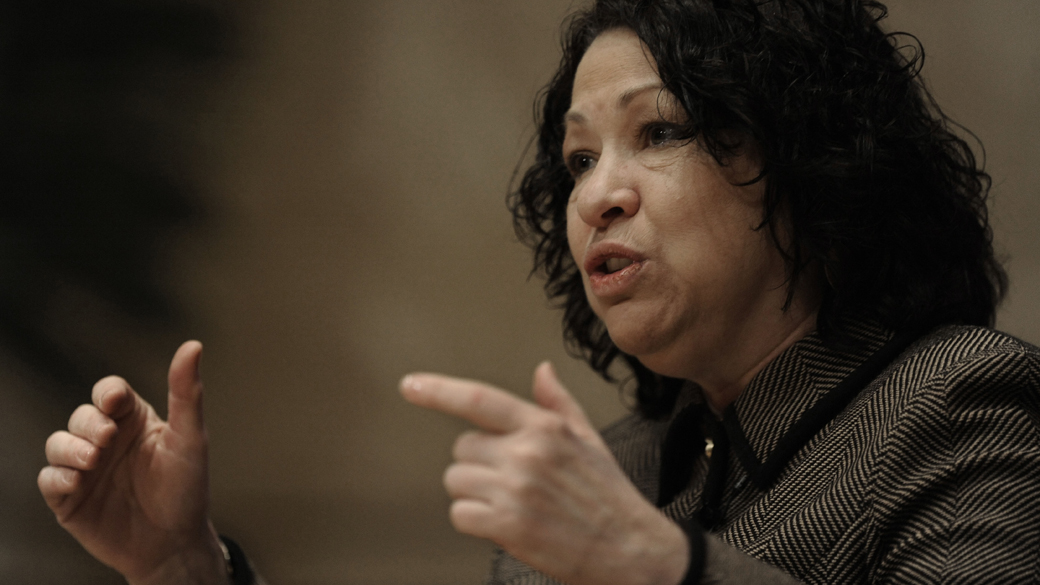
Supreme Court Justice Sonia Sotomayor speaks at Northwestern University School of Law in Chicago, March 7, 2011. (AP Photo/Paul Beaty)
“In my colleagues view,” she wrote, “examining the racial impact of legislation only perpetuates racial discrimination. This refusal to accept the stark reality that race matters is regrettable. The way to stop discrimination on the basis of race is to speak openly and candidly on the subject of race, and to apply the Constitution with eyes open to the unfortunate effects of centuries of racial discrimination. As members of the judiciary tasked with intervening to carry out the guarantee of equal protection, we ought not sit back and wish away, rather than confront, the racial inequality that exists in our society. It is this view that works harm, by perpetuating the facile notion that what makes race matter is acknowledging the simple truth that race does matter.”
4. Justice Stephen Breyer on McCutcheon
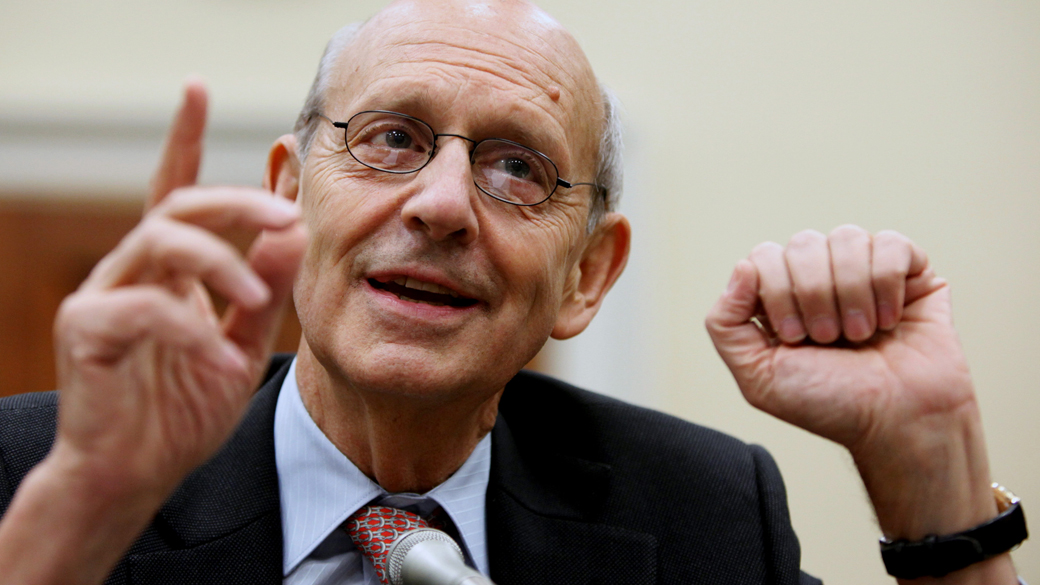
Supreme Court Justice Stephen Breyer testifies on Capitol Hill in Washington, April 23, 2009, before the House Financial Services and General Government subcommittee hearing. (AP Photo/Manuel Balce Ceneta)
“Its legal analysis is faulty: It misconstrues the nature of the competing constitutional interests at stake. It understates the importance of protecting the political integrity of our governmental institutions. It creates a loophole that will allow a single individual to contribute millions of dollars to a political party or to a candidate’s campaign.”
5. Justice Ruth Bader Ginsburg on voting rights
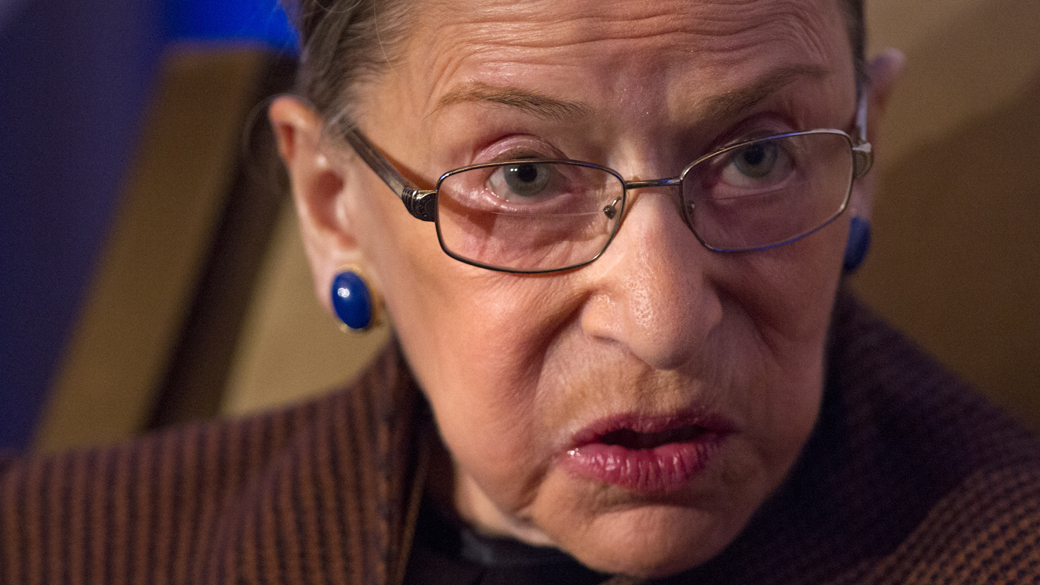
Supreme Court Justice Ruth Bader Ginsburg speaks to the Northern Virginia Technology Council, Dec. 17, 2013, in Reston, VA. (AP Photo/Jacquelyn Martin)
In her dissent, Justice Ruth Bader Ginsburg challenged the chief justice’s reasoning; given the importance of the right to vote, she wrote that it should be up to an elected body — Congress — to decide whether or not the law was out-of-date. “Given a record replete with examples of denial or abridgment of a paramount federal right, the Court should have left the matter where it belongs: in Congress’ bailiwick,” she wrote.
“Instead, the Court strikes [the Voting Rights Act’s] coverage provision because, in its view, the provision is not based on ‘current conditions.’ … It discounts, however, that one such condition was the preclearance remedy in place in the covered jurisdictions, a remedy Congress designed both to catch discrimination before it causes harm, and to guard against return to old ways. … Volumes of evidence supported Congress’ determination that the prospect of retrogression was real. Throwing out preclearance when it has worked and is continuing to work to stop discriminatory changes is like throwing away your umbrella in a rainstorm because you are not getting wet.”
6. Justice John Paul Stevens on Citizens United
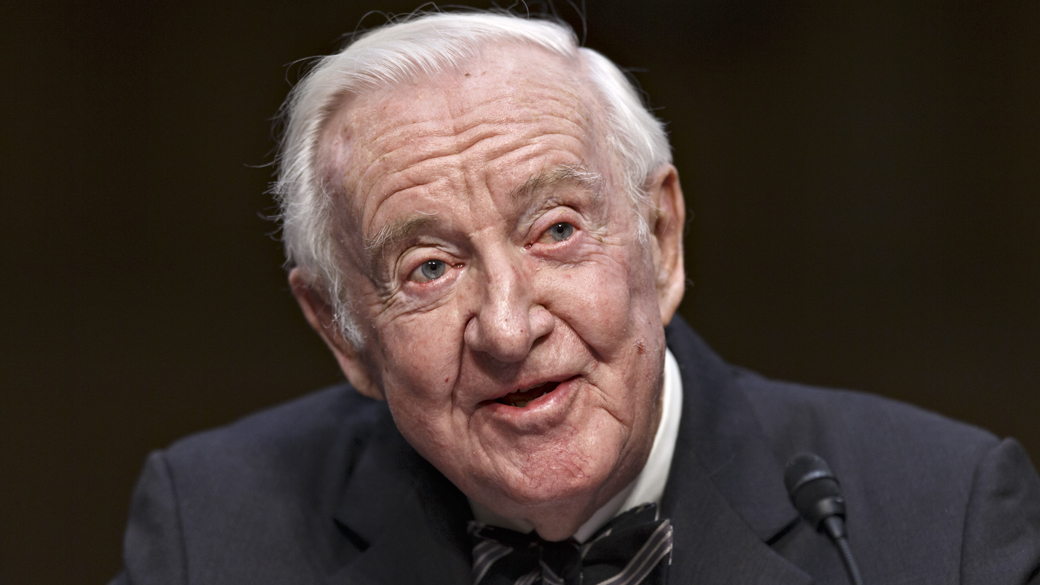
Retired Supreme Court Justice John Paul Stevens testifies before the Senate Rules Committee on Capitol Hill in Washington, April 30, 2014. (AP Photo)
Stevens not only warned that “the Court’s ruling threatens to undermine the integrity of elected institutions across the Nation,” he also worried that “the path it has taken to reach its outcome will, I fear, do damage to this institution.”
“The Court operates with a sledge hammer rather than a scalpel when it strikes down one of Congress’ most significant efforts to regulate the role that corporations and unions play in electoral politics,” he wrote.
7. Justice John Paul Stevens on guns
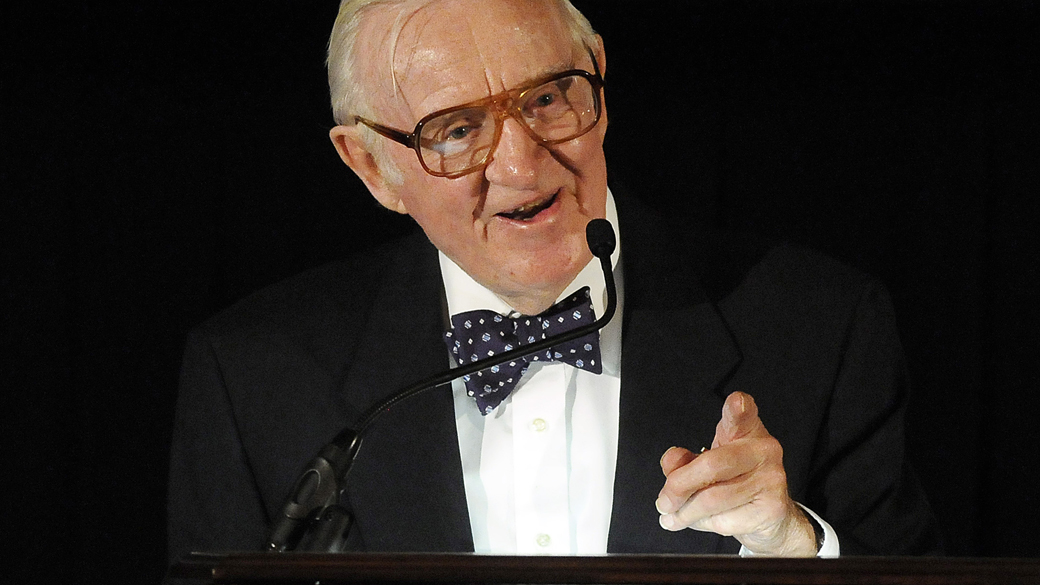
Supreme Court Justice John Paul Stevens speaks during the annual meeting of the 7th Circuit Bar Association & Judicial Conference of the 7th Circuit, May 3, 2010 in Chicago. (AP Photo/David Banks)
Justice Stevens wrote that the majority’s decision was based on a poor understanding of American history. “The Second Amendment was adopted to protect the right of the people of each of the several States to maintain a well-regulated militia,” he argued. “It was a response to concerns raised during the ratification of the Constitution that the power of Congress to disarm the state militias and create a national standing army posed an intolerable threat to the sovereignty of the several States. Neither the text of the Amendment nor the arguments advanced by its proponents evidenced the slightest interest in limiting any legislature’s authority to regulate private civilian uses of firearms. Specifically, there is no indication that the Framers of the Amendment intended to enshrine the common-law right of self-defense in the Constitution.”

